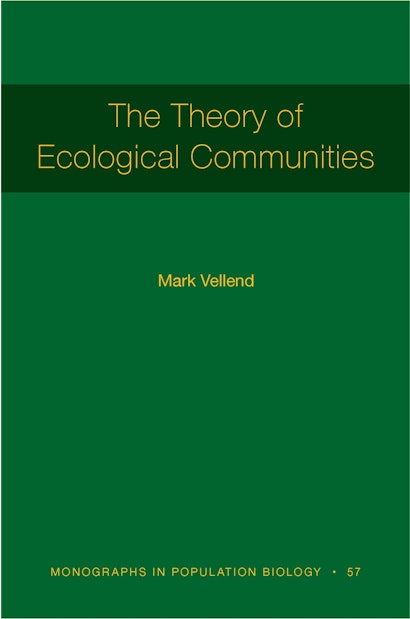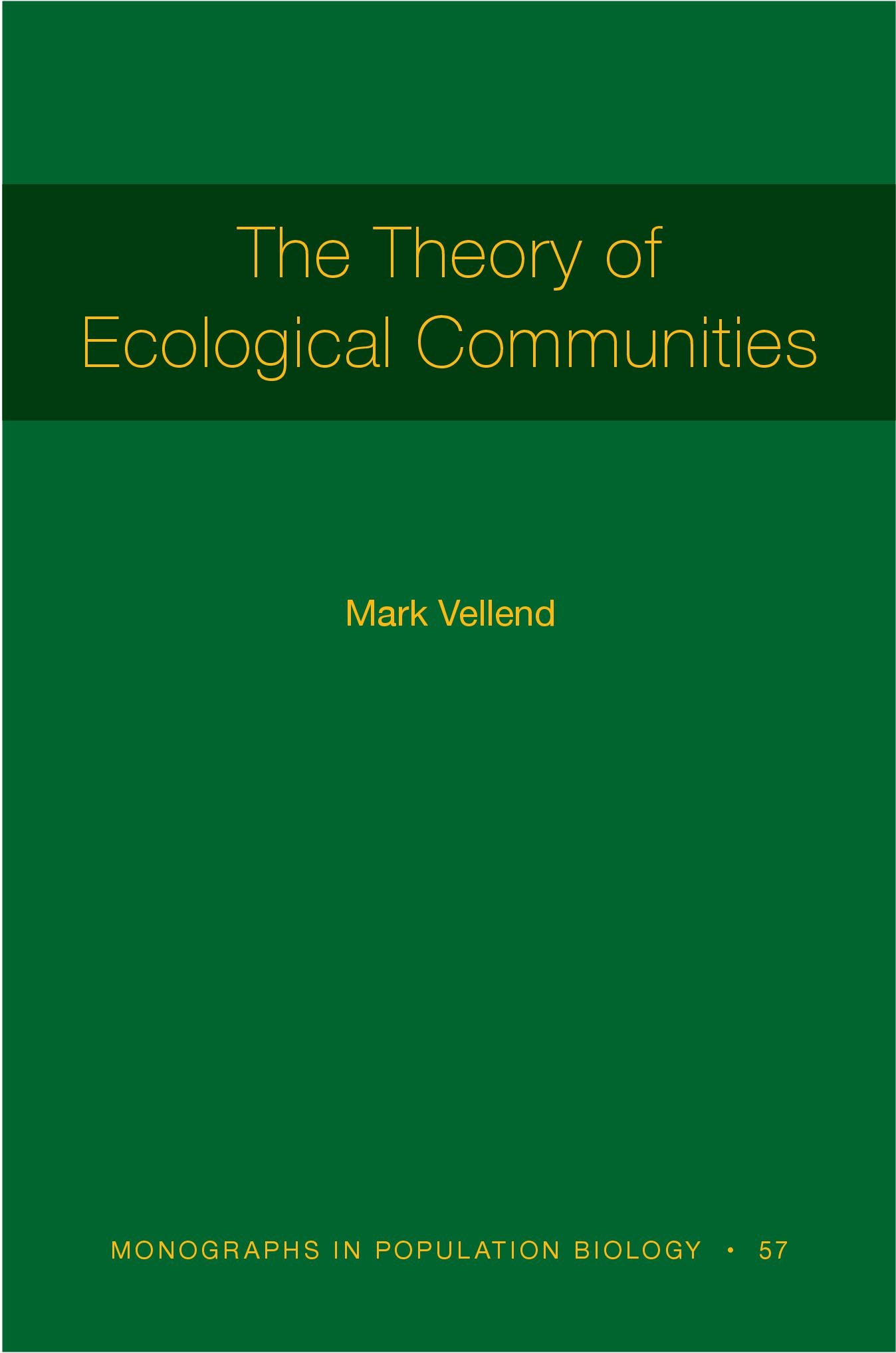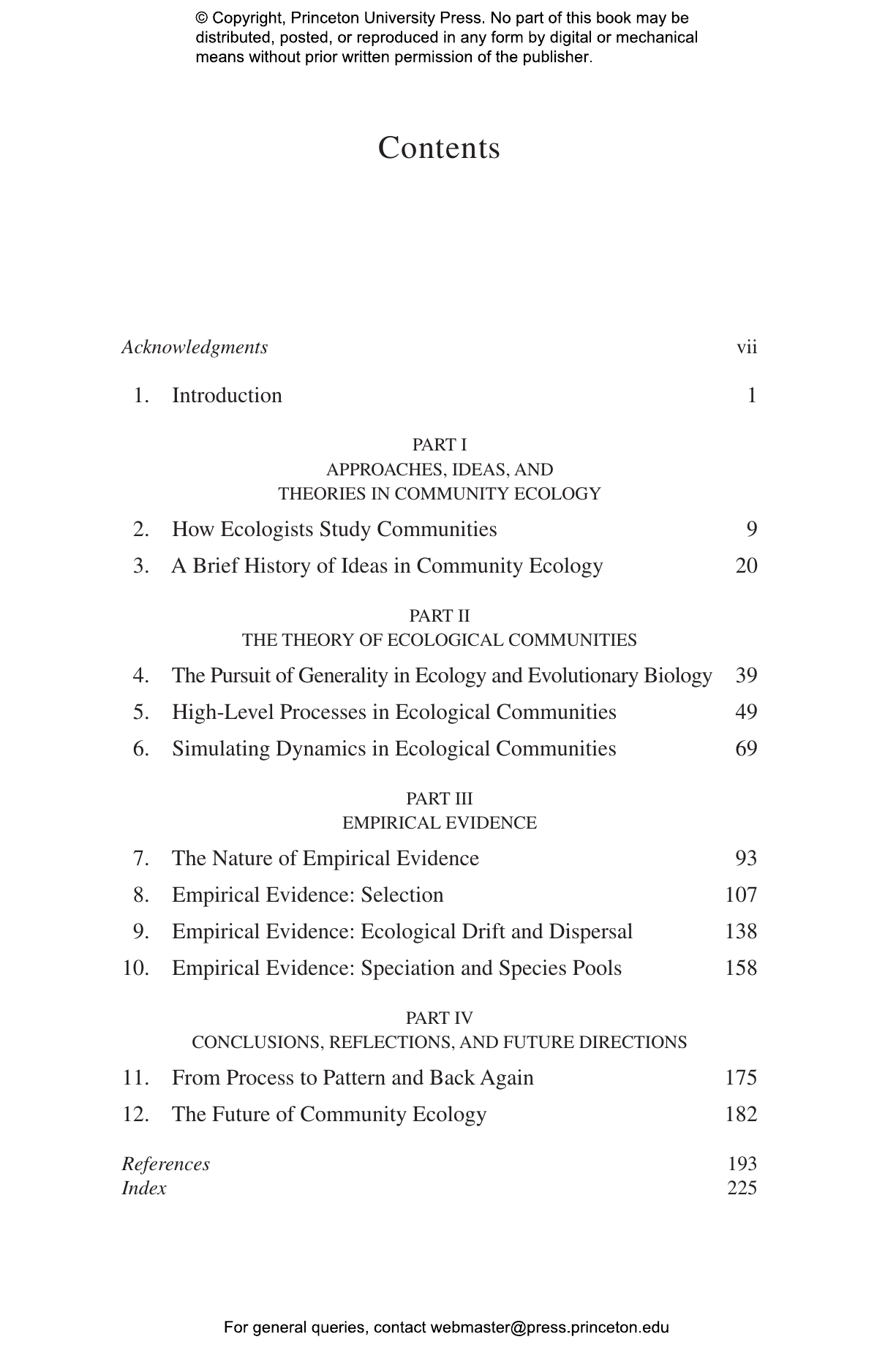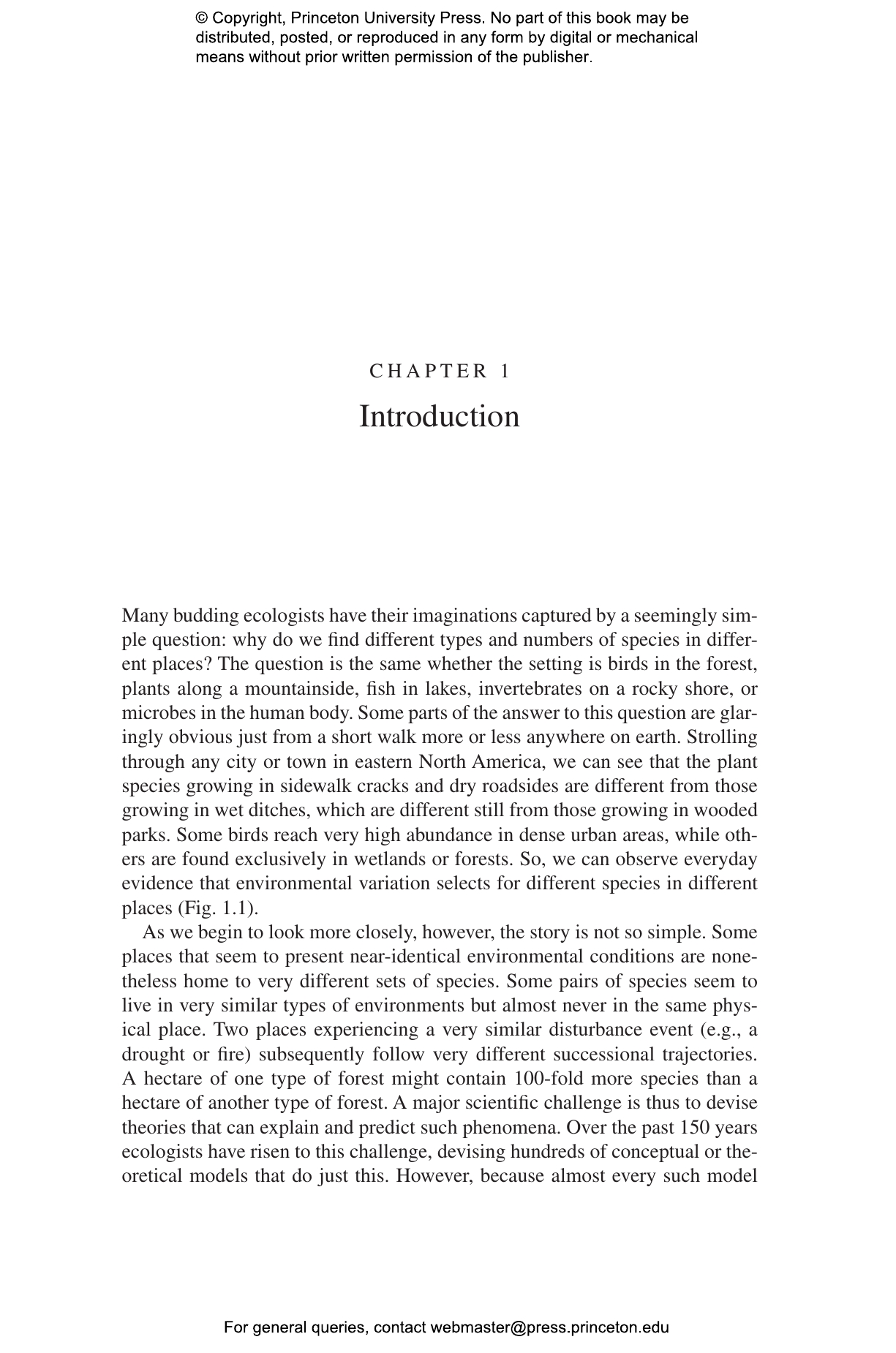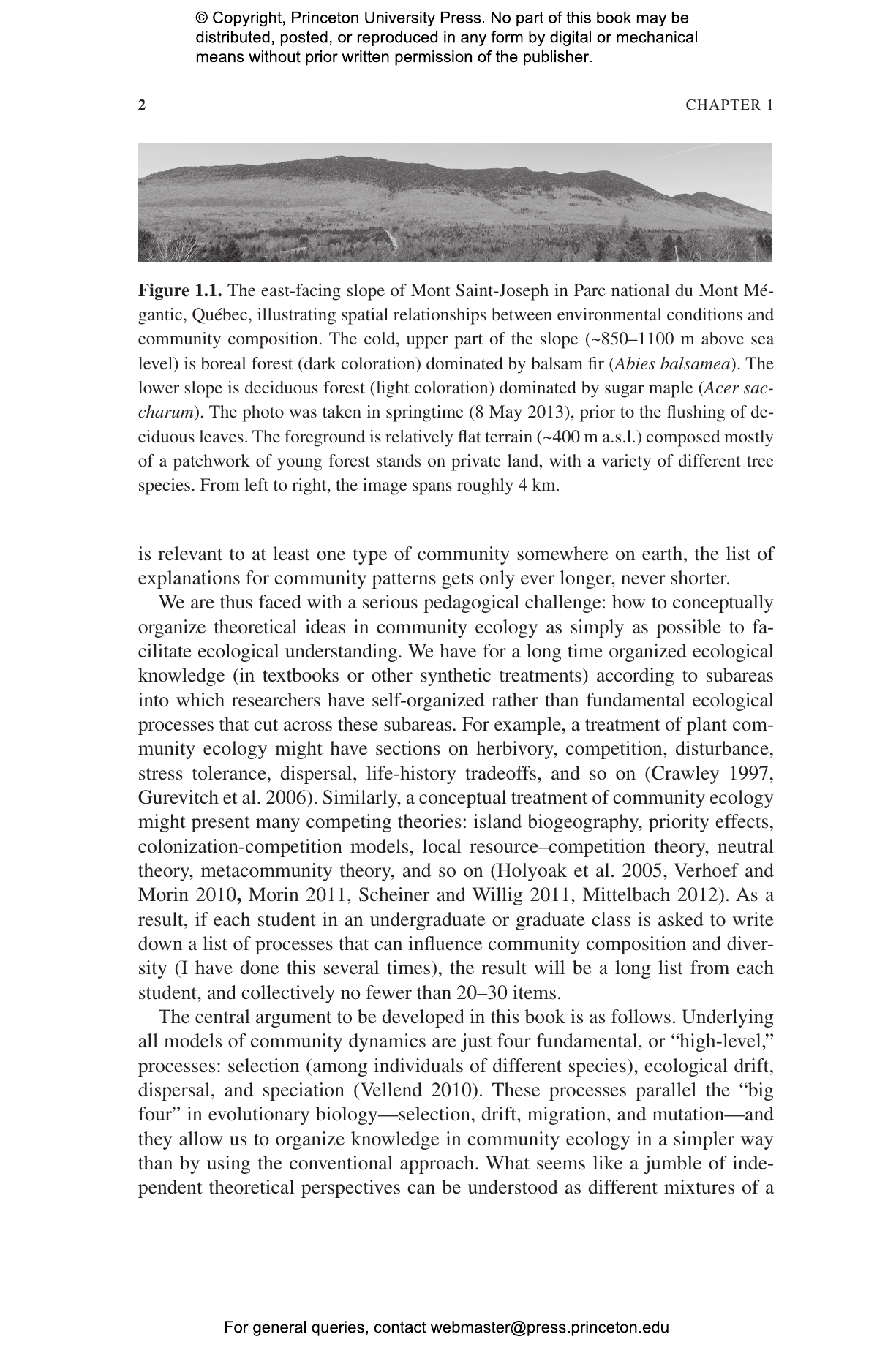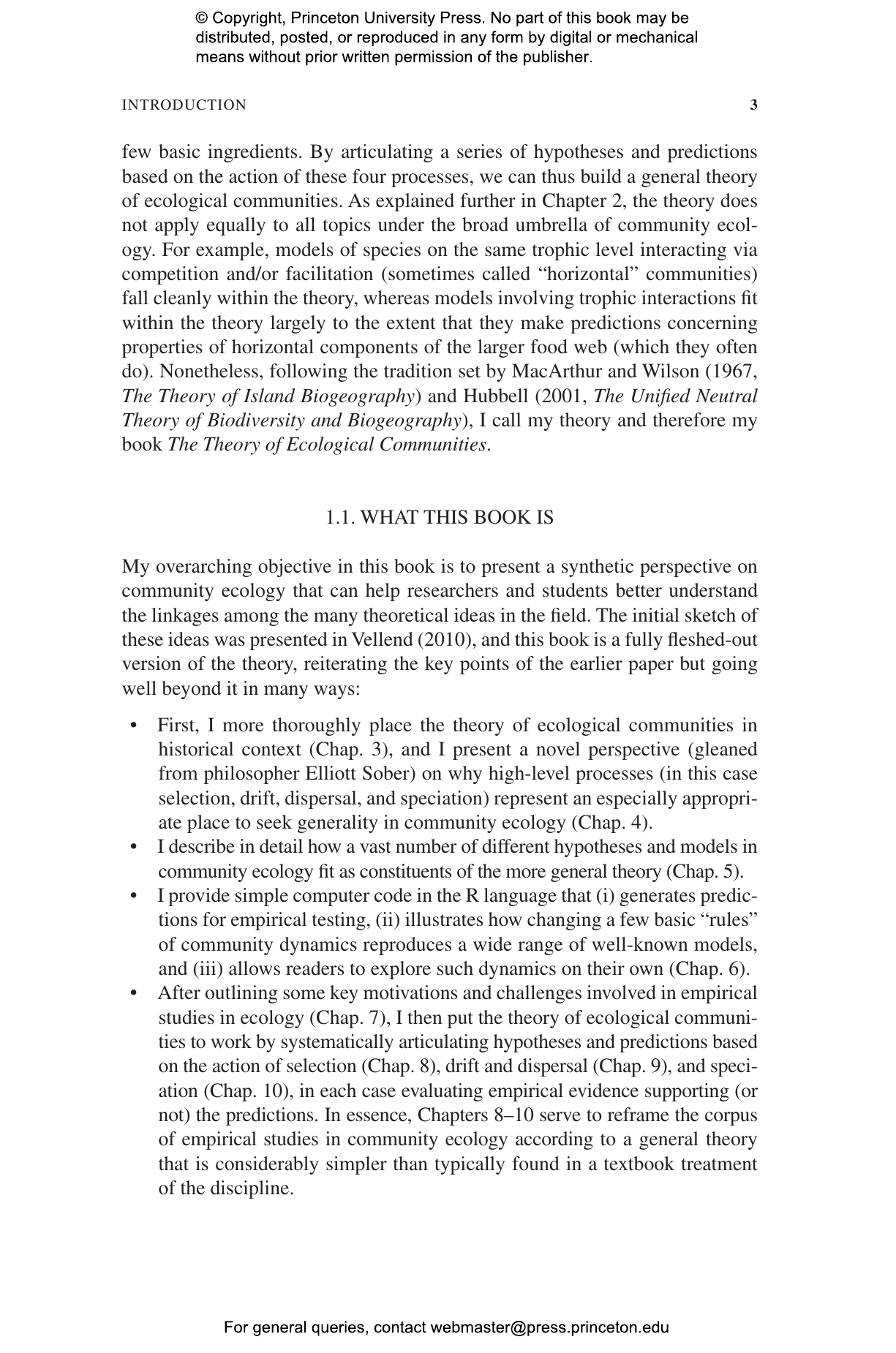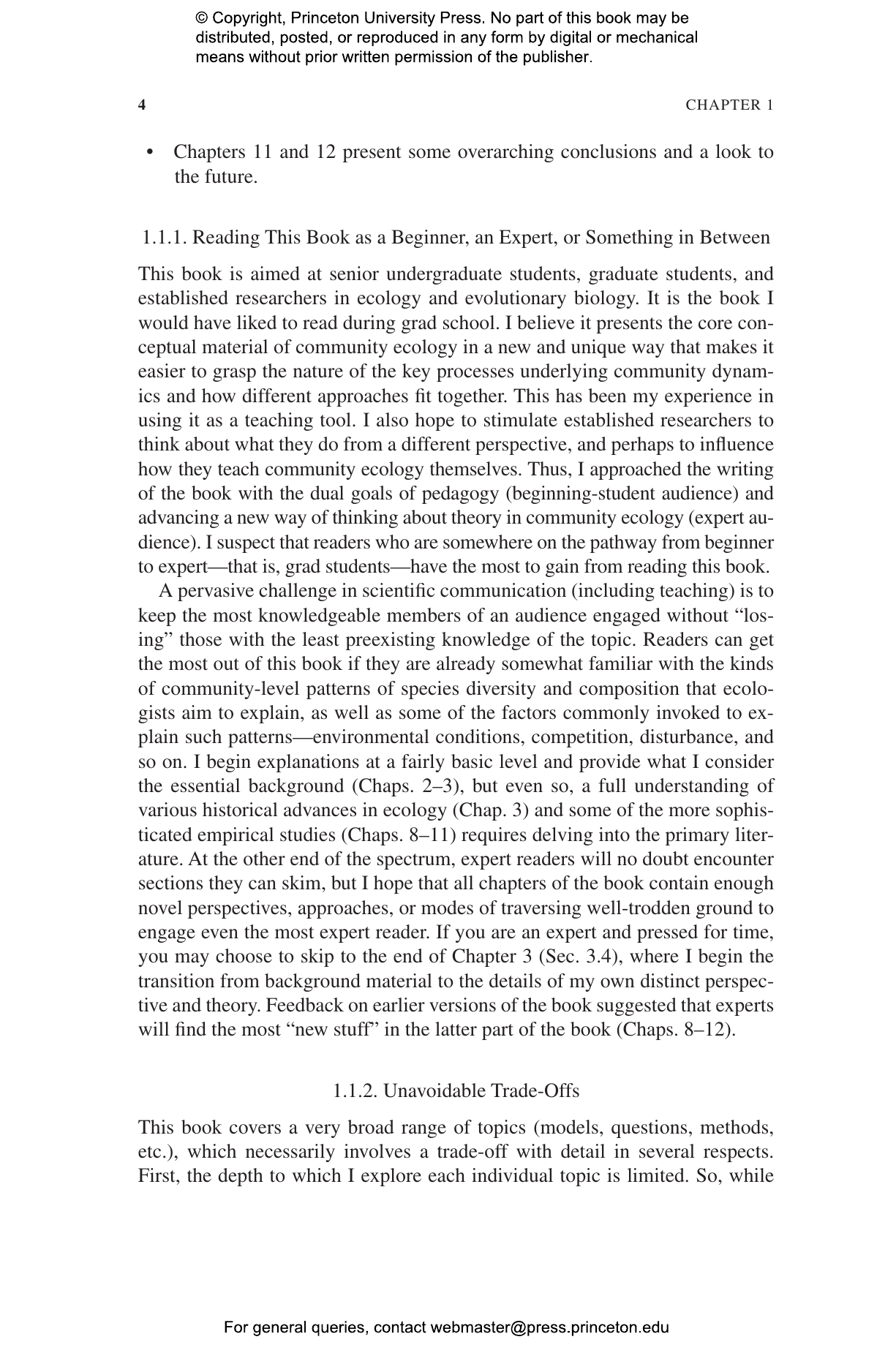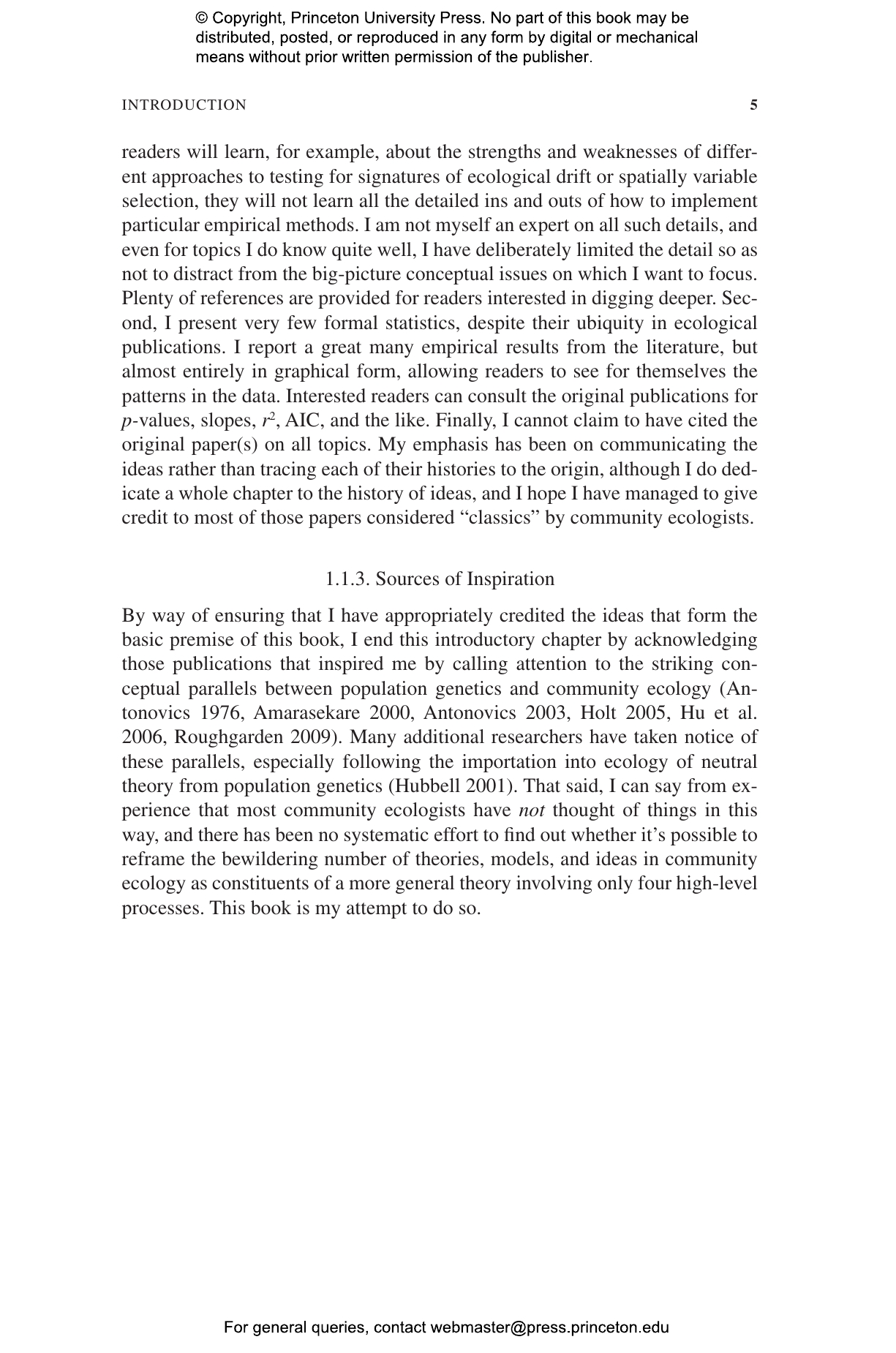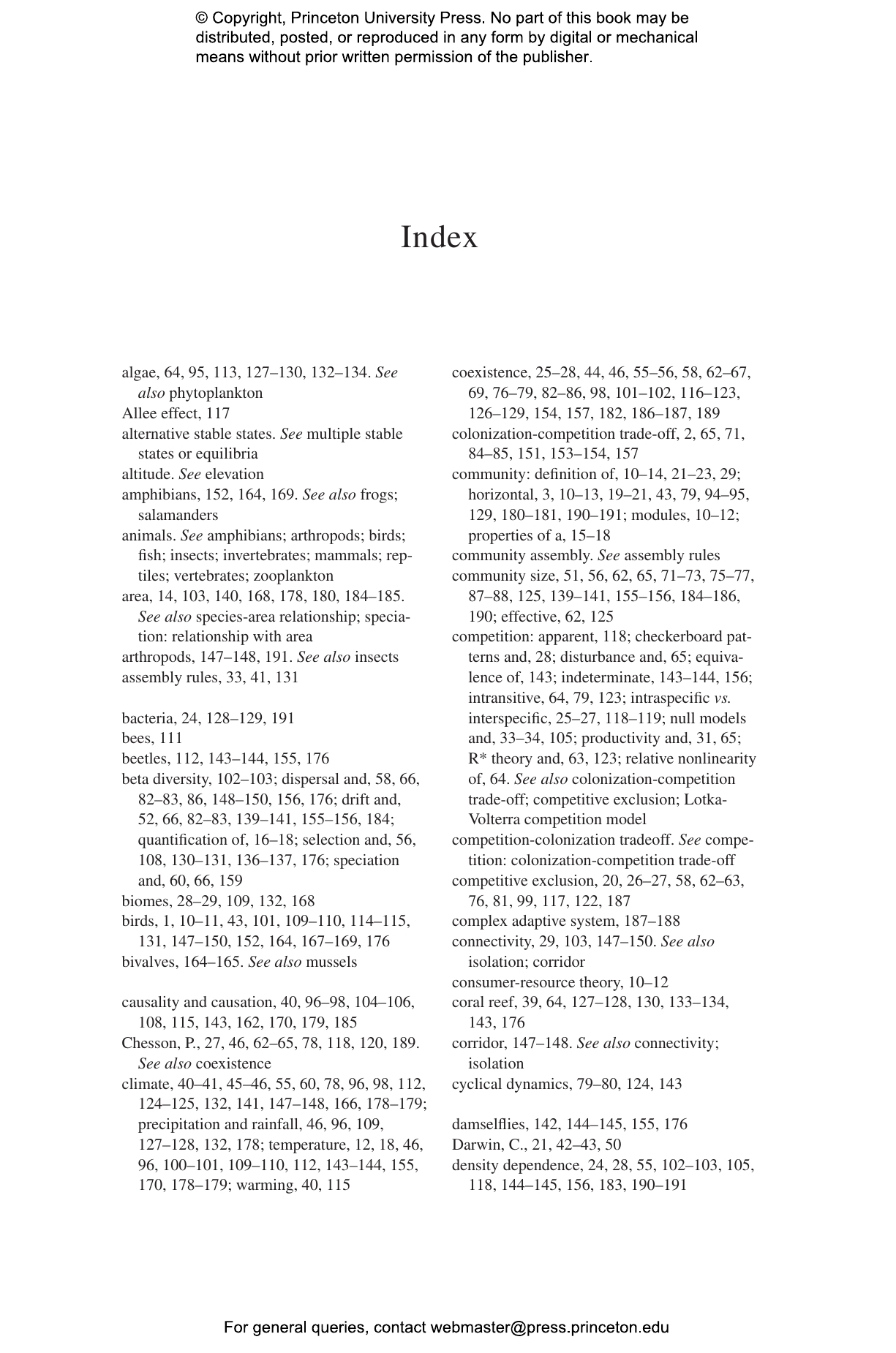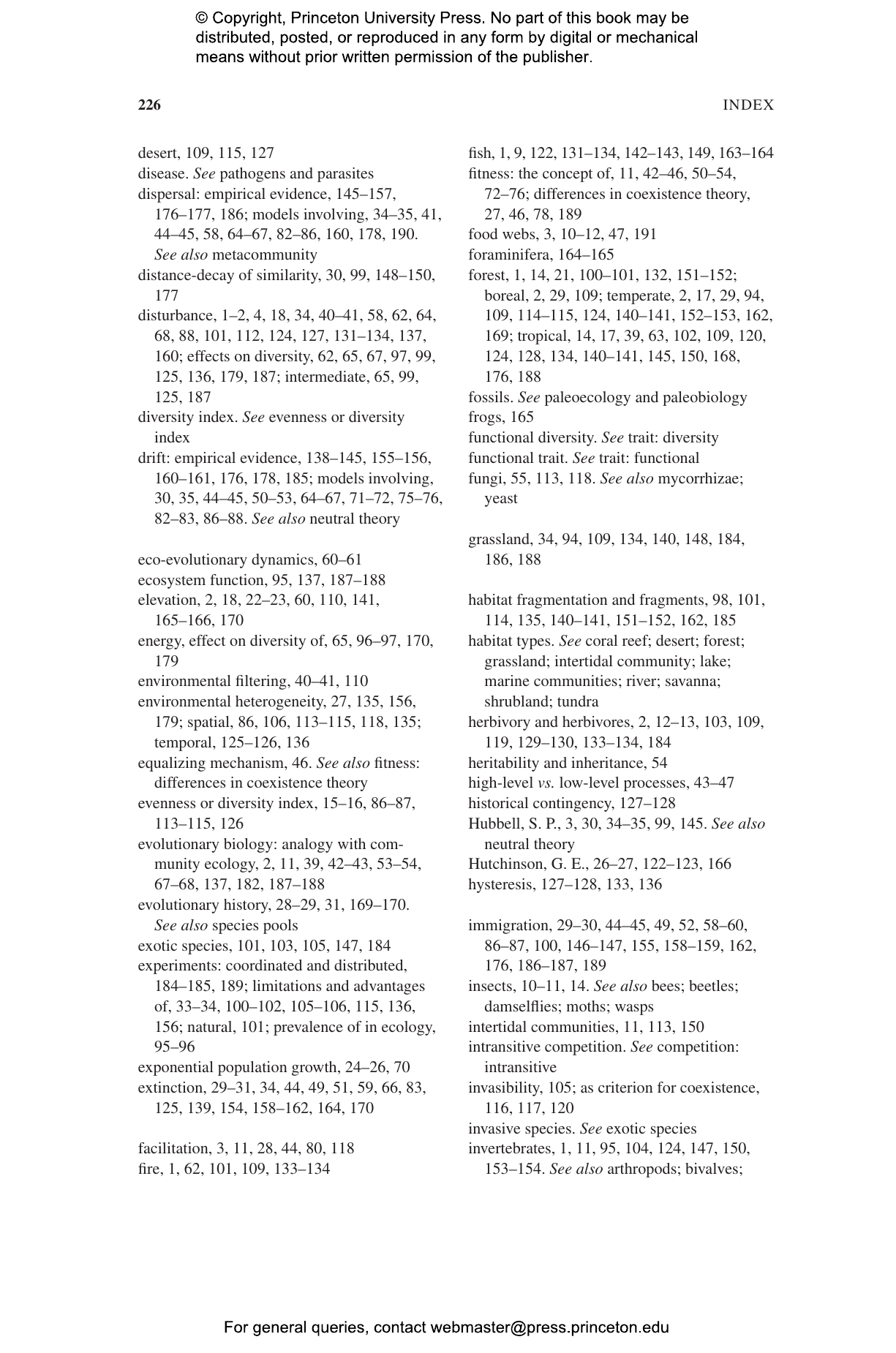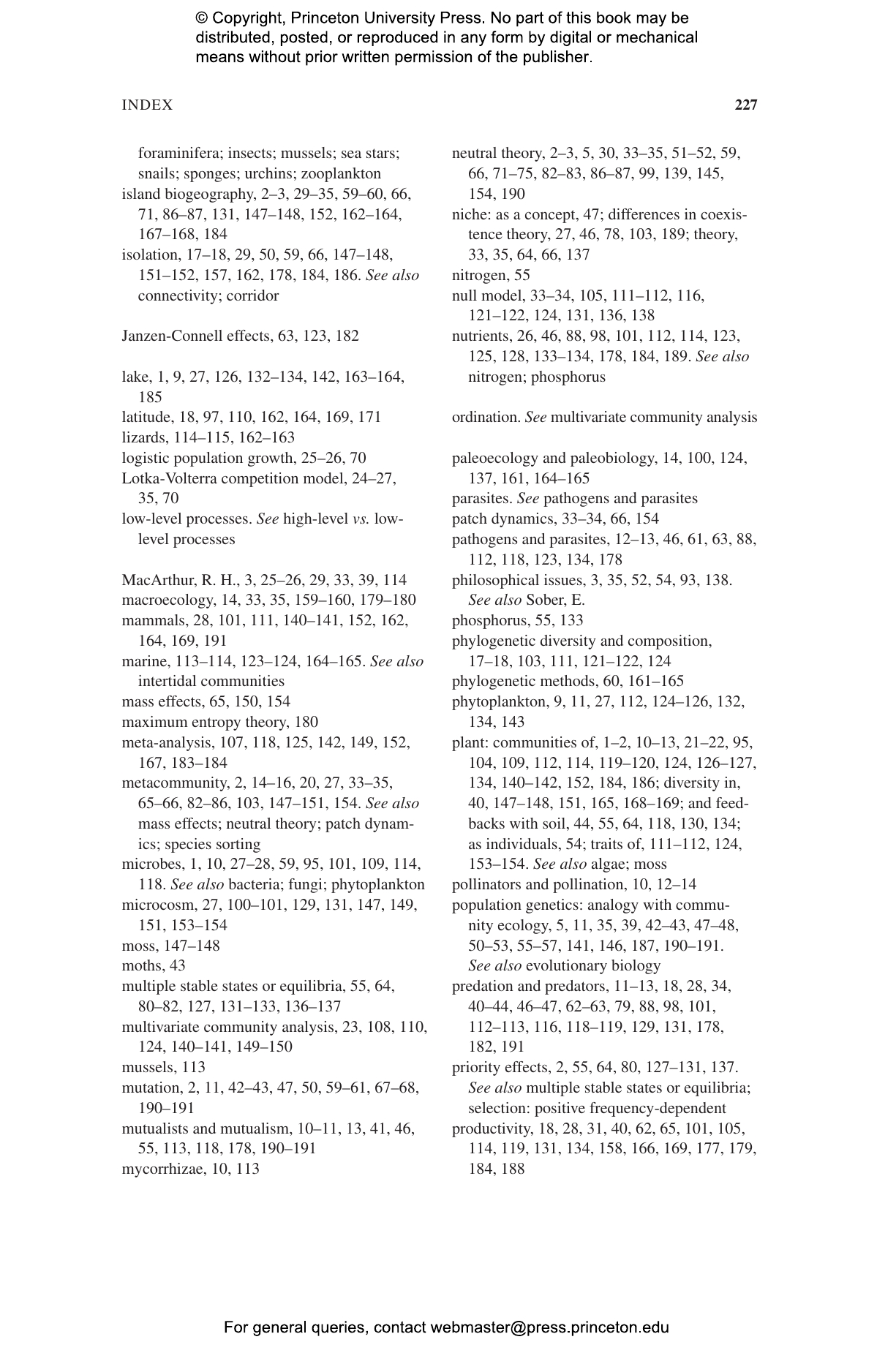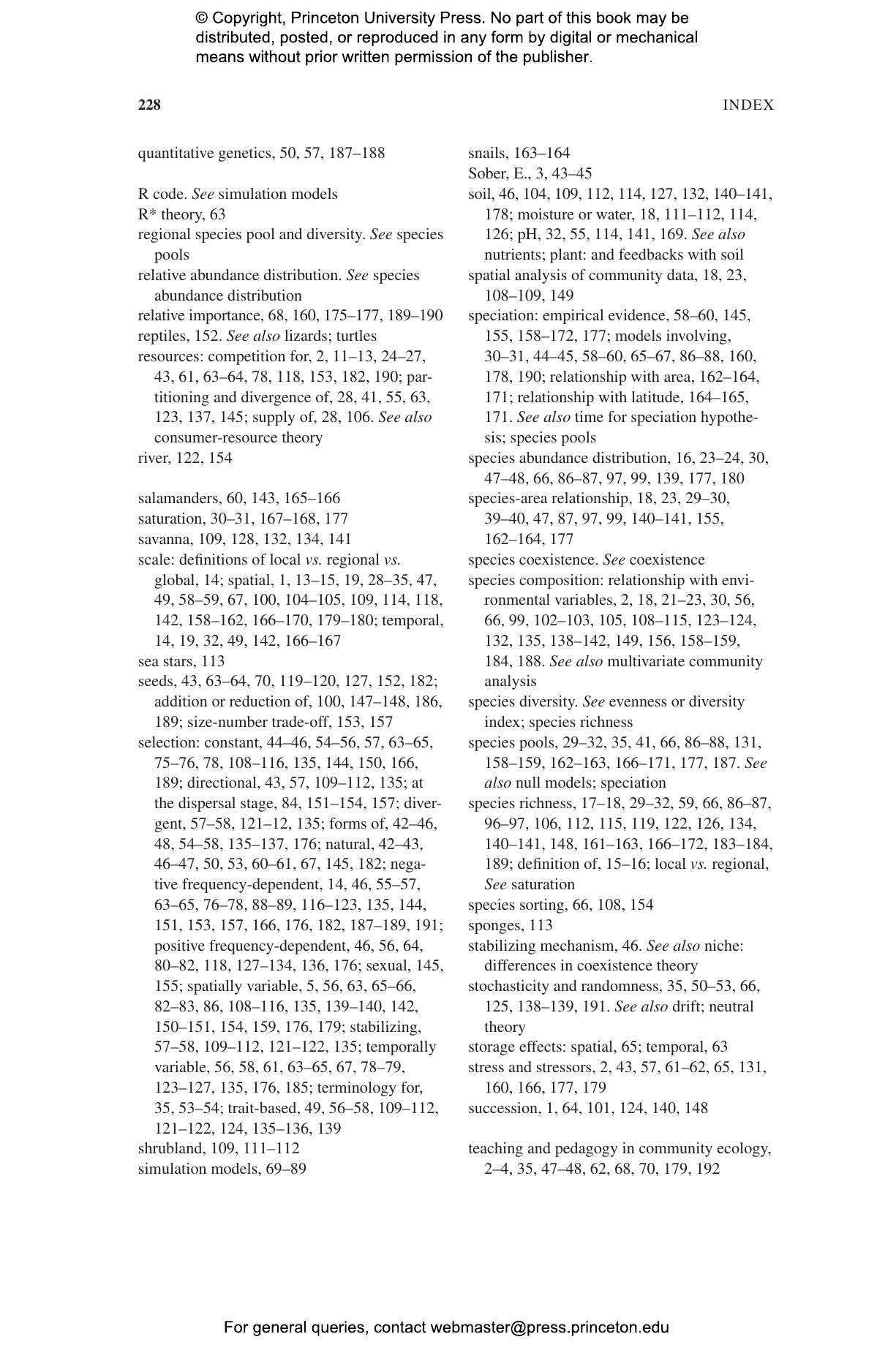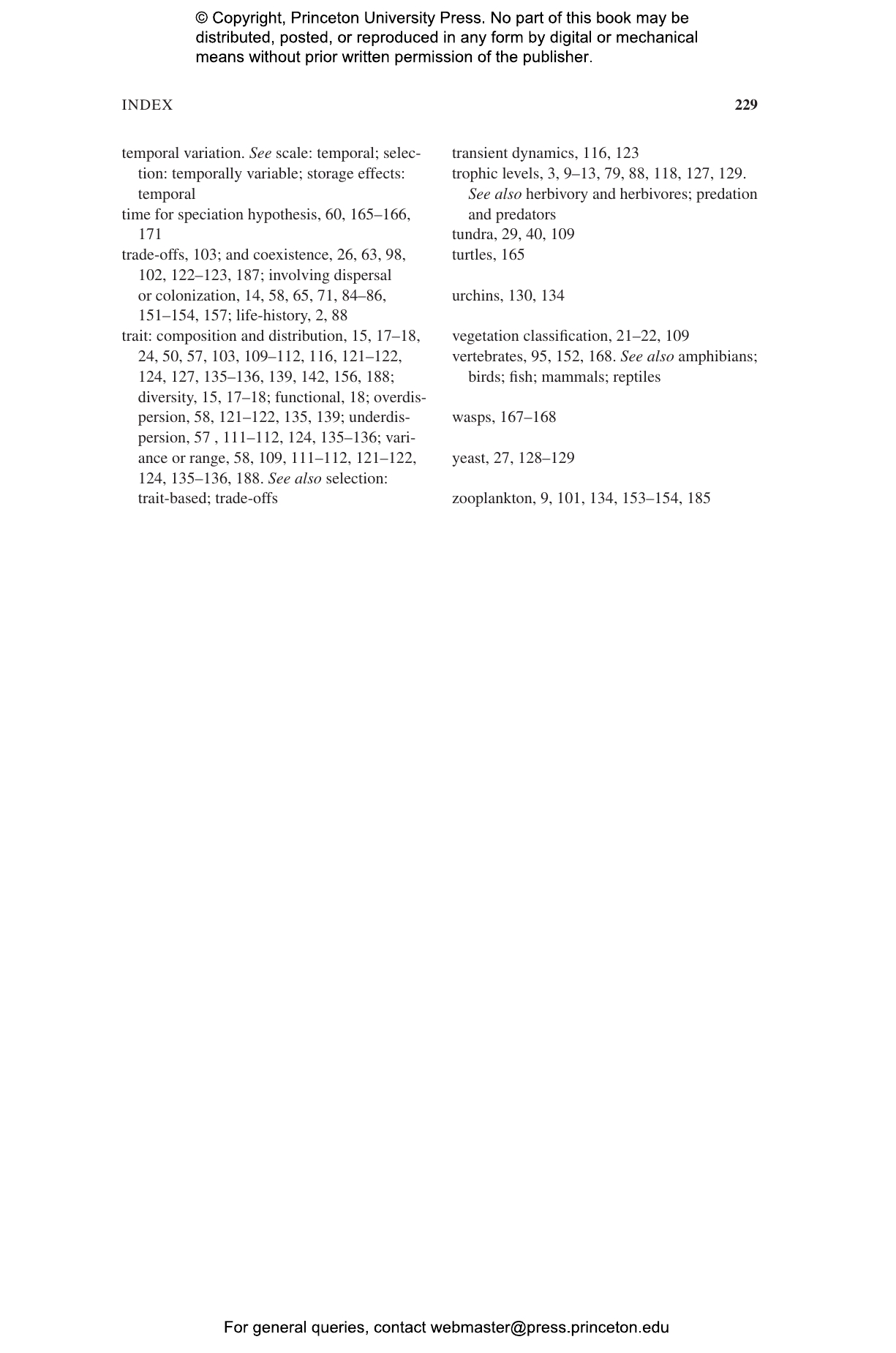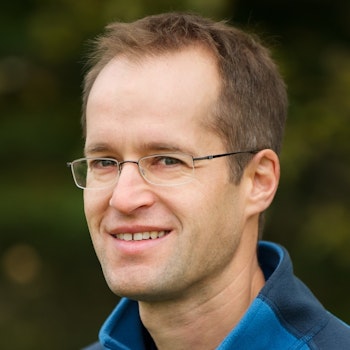A plethora of different theories, models, and concepts make up the field of community ecology. Amid this vast body of work, is it possible to build one general theory of ecological communities? What other scientific areas might serve as a guiding framework? As it turns out, the core focus of community ecology—understanding patterns of diversity and composition of biological variants across space and time—is shared by evolutionary biology and its very coherent conceptual framework, population genetics theory. The Theory of Ecological Communities takes this as a starting point to pull together community ecology’s various perspectives into a more unified whole.
Mark Vellend builds a theory of ecological communities based on four overarching processes: selection among species, drift, dispersal, and speciation. These are analogues of the four central processes in population genetics theory—selection within species, drift, gene flow, and mutation—and together they subsume almost all of the many dozens of more specific models built to describe the dynamics of communities of interacting species. The result is a theory that allows the effects of many low-level processes, such as competition, facilitation, predation, disturbance, stress, succession, colonization, and local extinction to be understood as the underpinnings of high-level processes with widely applicable consequences for ecological communities.
Reframing the numerous existing ideas in community ecology, The Theory of Ecological Communities provides a new way for thinking about biological composition and diversity.
Mark Vellend is professor of biology at the Université de Sherbrooke. He is a 2015 recipient of an E. W. R. Steacie Fellowship from the Natural Sciences and Engineering Research Council of Canada.
"In 1986, Thomas W. Schoener wrote a thought-provoking book chapter describing ecological communities along five organismal and five environmental axes. It was thought-provoking in the sense that Schoener attempted to unify community ecology using a minimal set of variables at a time when ecologists were doubtful of any unifying principle in community ecology. After three decades of Schoener's chapter, community ecologists are still divided about whether there could be a general theory of community. . . . Mark Vellend elegantly attempts to bridge this divide by introducing the theory of high-level processes in ecological communities in his Princeton Population Monograph entitled The Theory of Ecological Communities."—Madhav P. Thakur, Trends in Ecology and Evolution
"Vellend (biology, Univ. de Sherbrooke, Canada) provides a useful historical account of the wide variety of methods used in the field to lay the foundation for his proposed resolution of the resulting ‘mess.' The book is well written, profusely referenced, and a worthy addition to the distinguished ‘Monographs in Population Biology’ series from av������."—Choice
"Vellend does a tremendous job, and accomplishes for the field of community ecology what few have attempted, and even fewer, if any, have achieved. . . . With its overall plain language and clear prose, his book is excellent material for pre- and postgraduate students."—Lars Götzenberger and Jan Lepš, Conservation Biology
"[Vellend] brings together diverse empirical and theoretical traditions in an unprecedented, engaging, and productive manner."—Max W. Dresow and Jake J. Grossman, Metascience
"This is a very useful book for students and researchers."—Kevin S. McCann, Quarterly Review of Biology
"This is a much-needed synthesis on the key processes shaping ecological communities. Vellend puts his theoretical framework in historical context, presents testable hypotheses derived from the theory, and evaluates them in an extensive review of the empirical literature. Vellend's framework and synthesis will help community ecologists make significant progress in our understanding of how nature works."—Diego P. Vázquez, Argentine Institute for Dryland Research and National University of Cuyo
"Many people have suggested that community ecology is a morass of unique cases. Vellend's book audaciously challenges this view. Borrowing from evolution, he proposes just four general rules to cover all of community ecology. He fleshes this out with detailed examples, R code, and a mapping between his framework and traditional concepts. All community ecologists will have to respond to Vellend in their work, as this is the rare book that will dominate the discussion for years to come."—Brian McGill, University of Maine
"With clear and succinct definitions of complex ideas, this book constructs a theory of ecological communities based on fundamental processes of selection, drift, dispersal, and speciation. Vellend offers a useful framework that includes evolution as well as ecological factors and he makes a significant contribution to the field."—Marcel Holyoak, University of California, Davis
"This book is a selective review of the sprawling field of community ecology. Vellend provides an impressive conceptual synthesis that helps students and practitioners pull together the discipline's wide range of perspectives into a coherently organized whole."—Robert Holt, University of Florida
